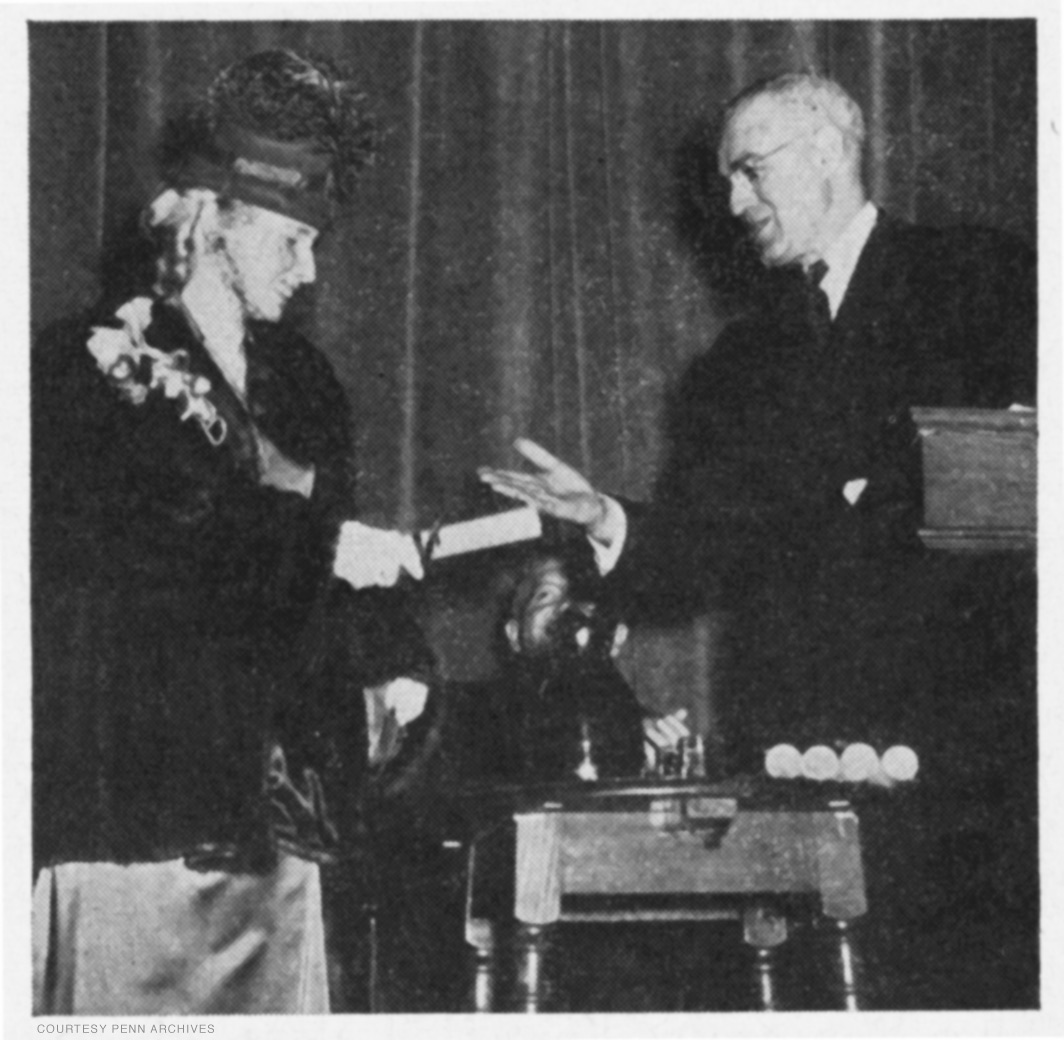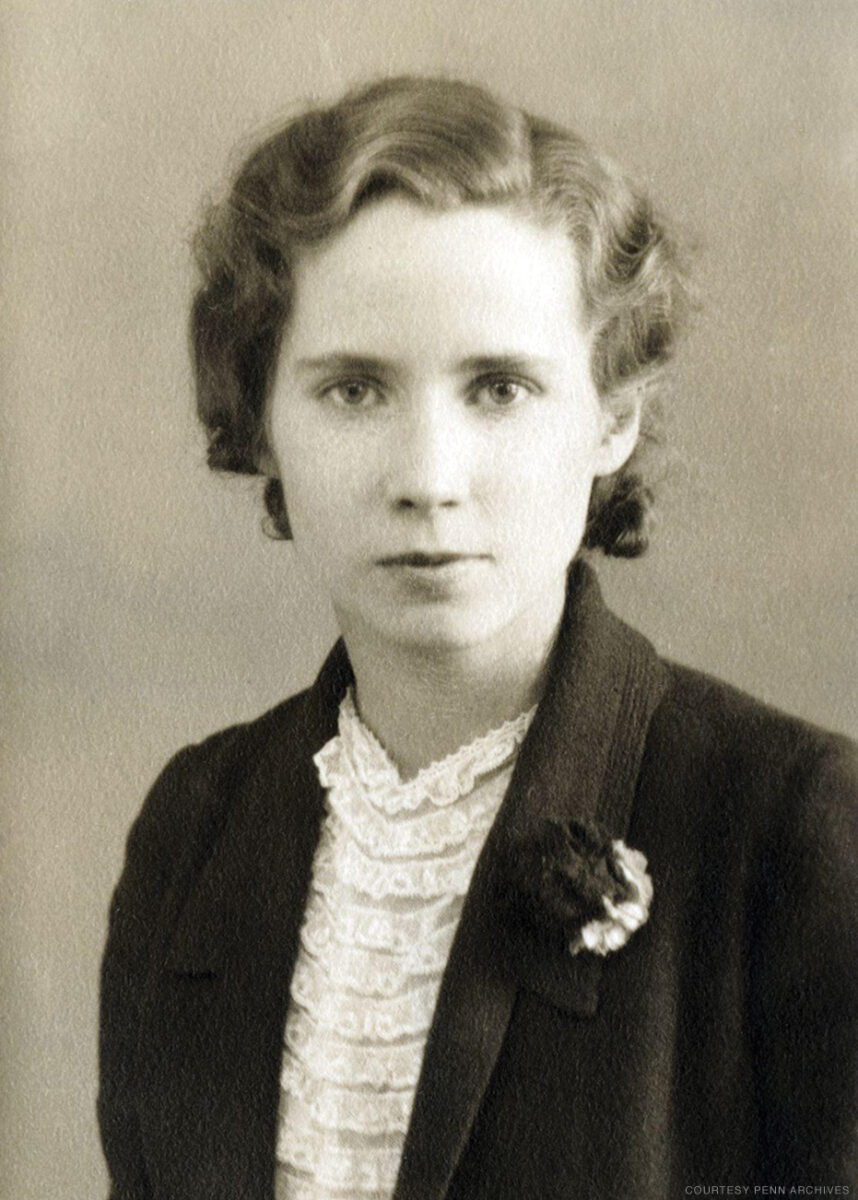
This month, in 1949, Laura Ruth “Patsy” Murray Klein Ed’31 G’33 Gr’43 became the first woman to receive Penn’s Alumni Award of Merit. “Your leadership and enthusiasm, your generous gift of time and energy have inspired Alumnae interest and participation everywhere in the great cause of our University,” reads the citation on her award certificate, which goes on to list a series of accomplishments for the 38-year-old alumna who hadn’t even peaked yet in her career.
Perhaps best known for her role as principal of the Philadelphia High School for Girls from 1963 to 1976, Klein (“renowned for [her] open-toed black suede shoes, untidy white bun and stylish black dress,” wrote Alexis Moore from the Girls’ High Class of June 1967 for the December 6, 1998, issue of the Inquirer Magazine) led the school through the turbulent ’60s and ’70s with grace and dedication. She believed girls to be just as intellectually curious as boys, and her administration reflected that. Among other initiatives, she established a program where students could choose an extra elective from a wide variety of subjects, as well as an internship program in partnership with businesses across the city. In total, she spent 41 years with the School District of Philadelphia as a beloved teacher and administrator.

Born on Valentine’s Day in 1910, Klein received her undergraduate degree in education, followed by a master’s and PhD in English, when it was still rare for women to receive a doctorate from Penn. As a student, she was involved in extracurriculars such as the Women’s Glee Club, Radio Plays, Dance, and Drama, and was the only first-year woman on the varsity debate team, eventually becoming team captain and manager. She was also a member of Chi Omega sorority and was a charter member of the women’s section of the Phi Beta Kappa Honor Society.
As an alumna, Klein served as national president of the Association of Alumnae from 1943 to 1946, vice president of the General Alumni Society, and president of the Philadelphia branch of the American Association of University Women. Her merit award cites her “distinguished service to Pennsylvania women.”
Klein “never accepted second-class status in anything,” wrote Robin Warshaw in a December 8, 1978, letter to the editor published in the Philadelphia Inquirer. “To thousands of Girls’ High students, Dr. Klein was a role model of women’s potential for achievement.” She died on June 4, 1998, at age 88. —NP

